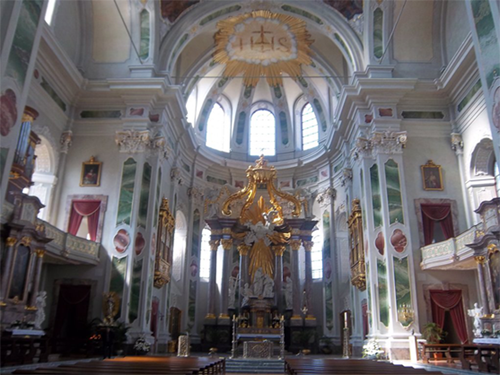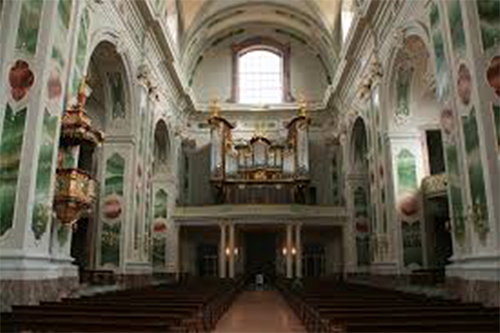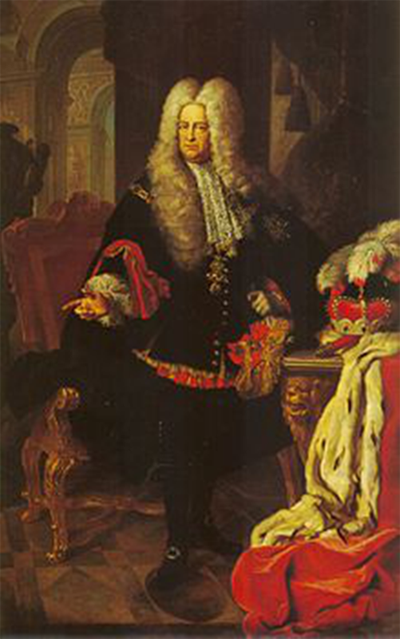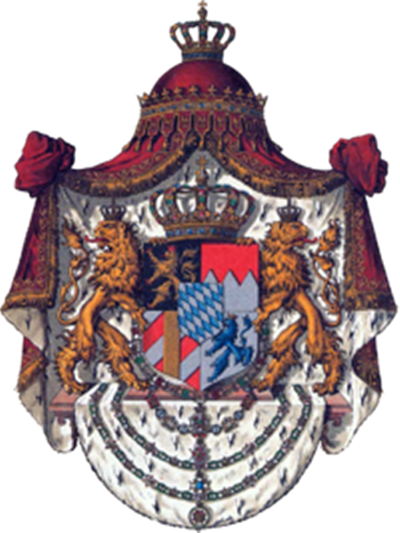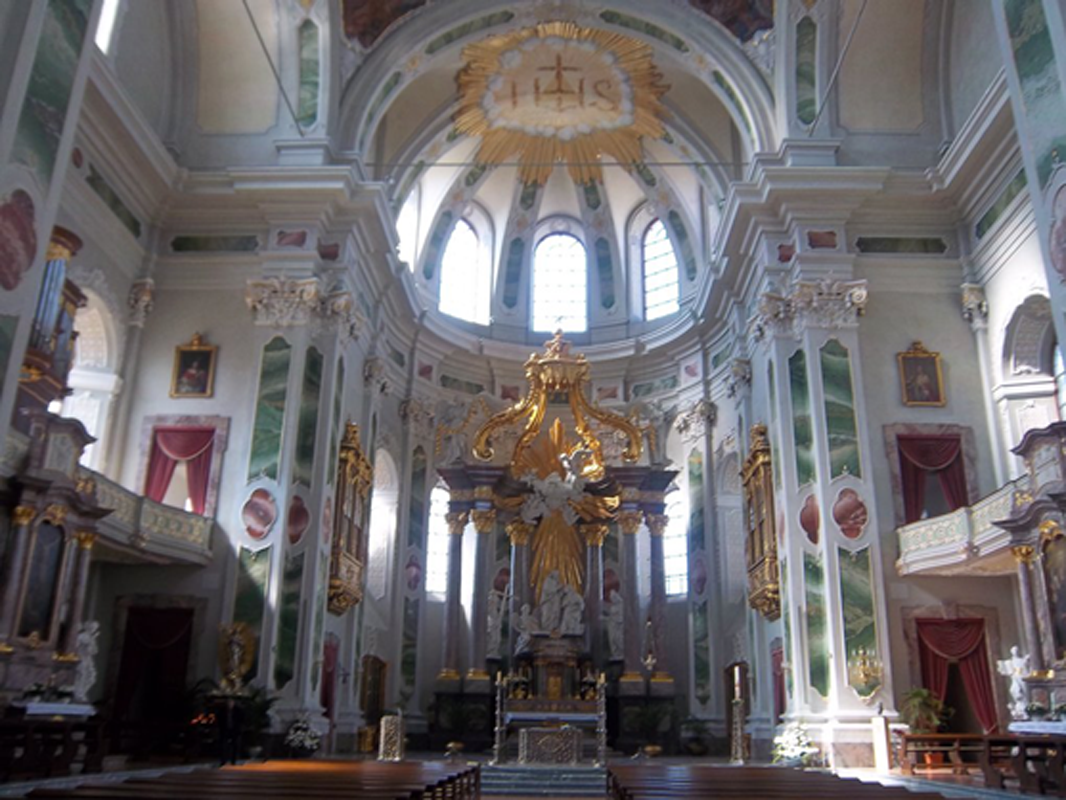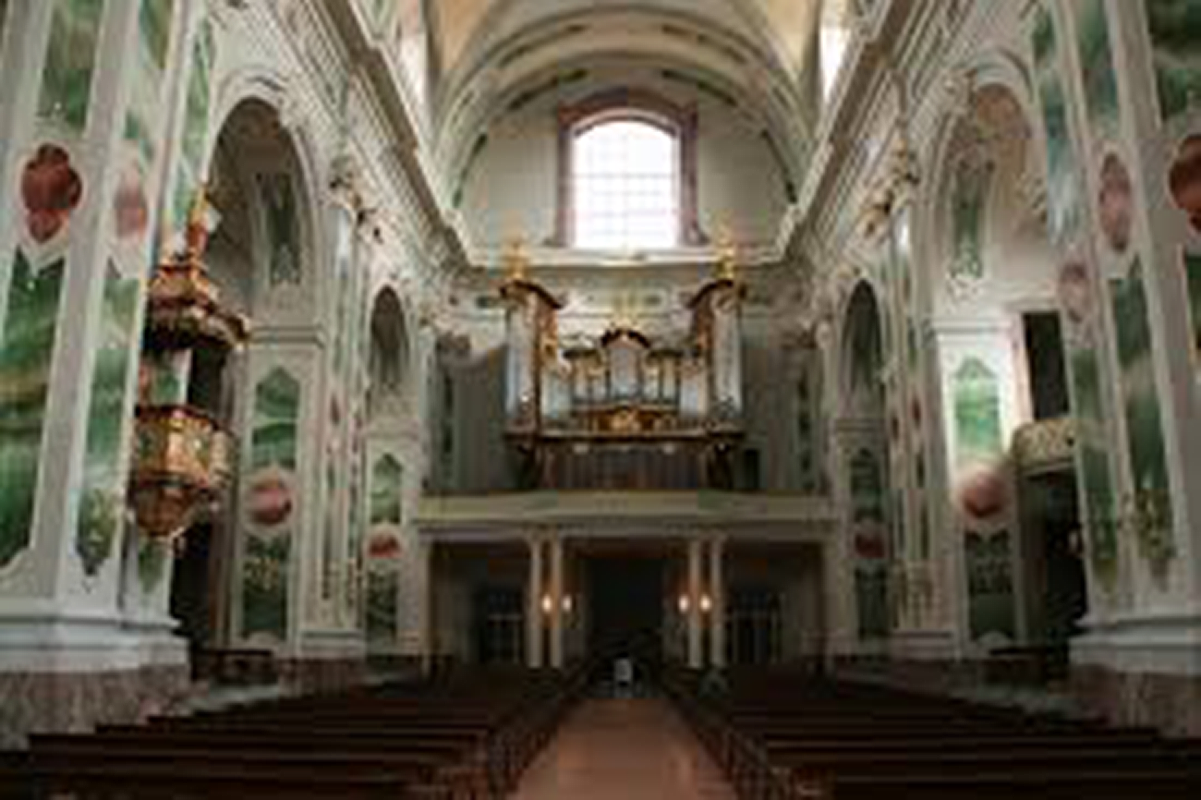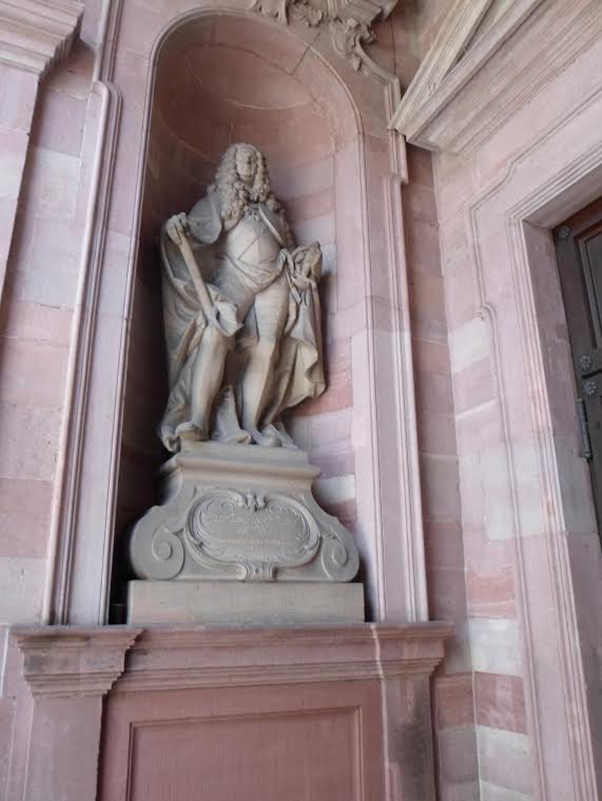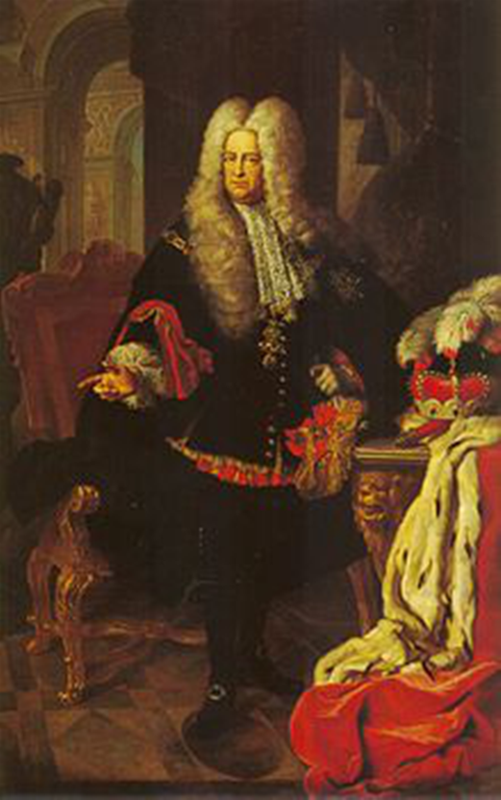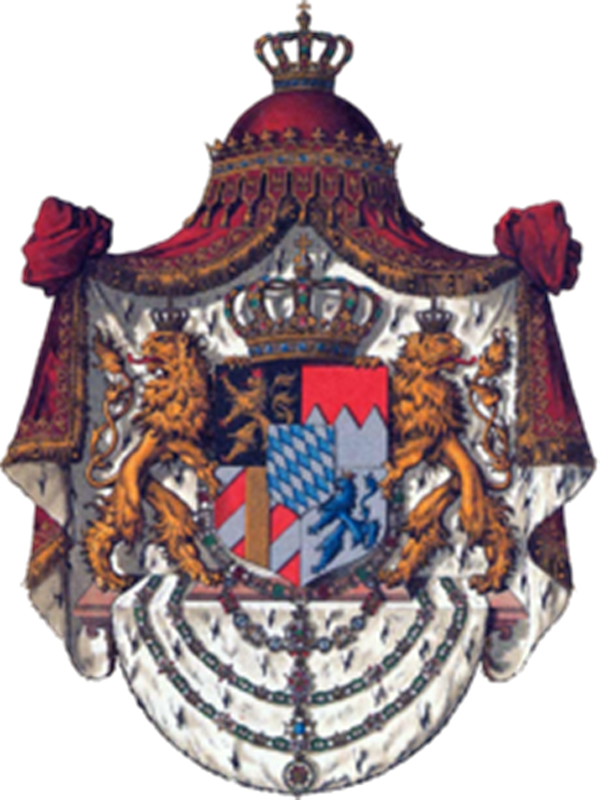Interior Views of the Church
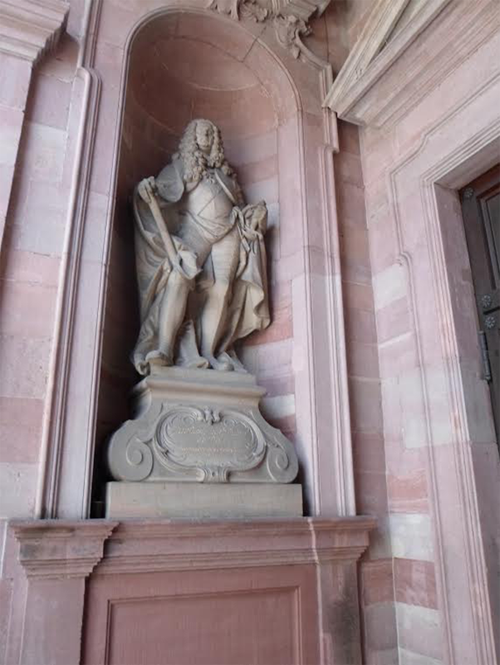
Statue of Prince Elector Karl Philipp III. Seven months after serving as Friedrich Carl Christlieb’s God-sponsor, Karl Philipp died at Mannheim, in December 1742. The baptism/conversion was one of the Prince Elector’s last public appearances.
The Arms of the House of Wittelsbach
The opening paragraph of Benjamin Franklin Christlieb’s 1895 publication, The Christlieb Family, reads: "“The Christlieb family of America descends from Frederick Carl Christlieb of Dürkheim, Rhenish Bavaria, who with his family, immigrated to America in 1765. The family tradition is that he was in some way connected by blood or otherwise with a reigning family of Germany, the name of which is not carried with the tradition.”
In 1976, seventy-one years after Benjamin Franklin Christlieb published his writings, Friedrich Carl Christlieb’s baptismal/conversion entry was found among the church entries at Bad Dürkheim. The entry revealed that, not one but three sovereigns served as God-sponsors at the baptism/conversion ceremony, when the young Jew, Simon aus Frankenstein, became Friedrich Carl Christlieb.
In addition to Prince Elector Karl Philipp III, Friedrich Magnus, Count of Leiningen-Dagsburg-Hartenburg, and his distant cousin, Christian Carl Reinhard, Count of Leiningen-Dachsburg-Falkenburg and Heidenheim, endorsed the occasion with their presences.
The foregoing explains the Christlieb family’s oral tradition that Friedrich Carl Christlieb had indeed been connected with a reigning family of Germany, that reigning family being the House of Wittelsbach.
However, this is only part of the story. The question remains: Why were these great approbations made over one singular Jew, who decided to convert to Christianity?
Upon conversion, Friedrich Carl Christlieb not only became a Christian, he became a member of the Lutheran Faith. The state religion of the two duchies of Leiningen, over which the Count Friedrich Magnus and Count Christian Carl Reinhard ruled, was Lutheran. Yet, Prince Karl Philipp III, was a staunch Catholic, a man so strong in his faith that he deserted Heidelberg, the ancestral home of all Wittelsbach rulers before him and relocated to Mannheim, where he could rule and worship as he pleased. The coming together of these sovereigns suggests an action of solidarity. Perhaps the social atmosphere of the time was such that it was politically advantageous that these sovereigns of different faiths endorse this young Jew’s conversion to Christianity, in a public way.
- Ned Crislip
INTERNET RESOURCES:
Encyclopedia Britannia Online: House of Wittelsbach.
Paradox Interactive: The Houses of Wittelsbach: The Royal Family of Bavaria.
Wikipedia, The Free Encyclopedia – Windows International Explorer: Houses of Wittelsbach.

